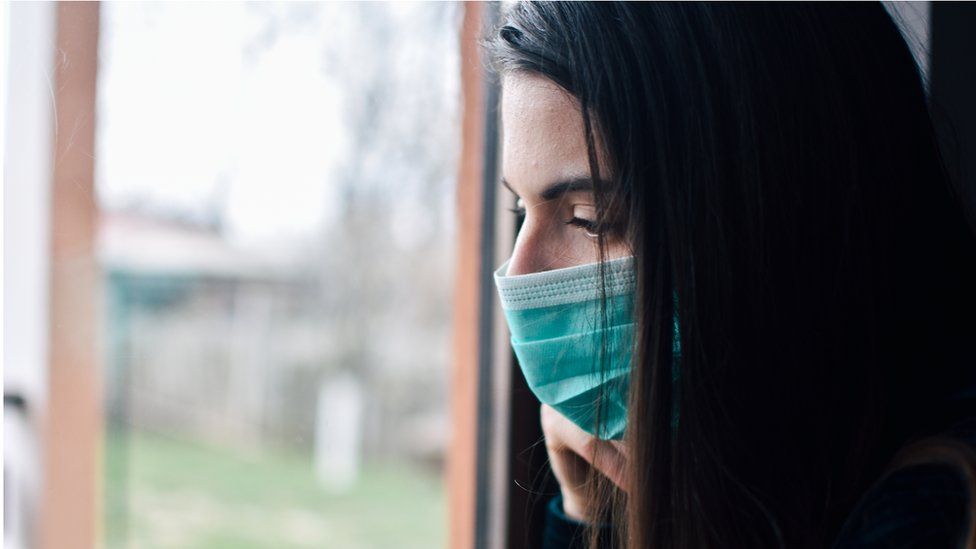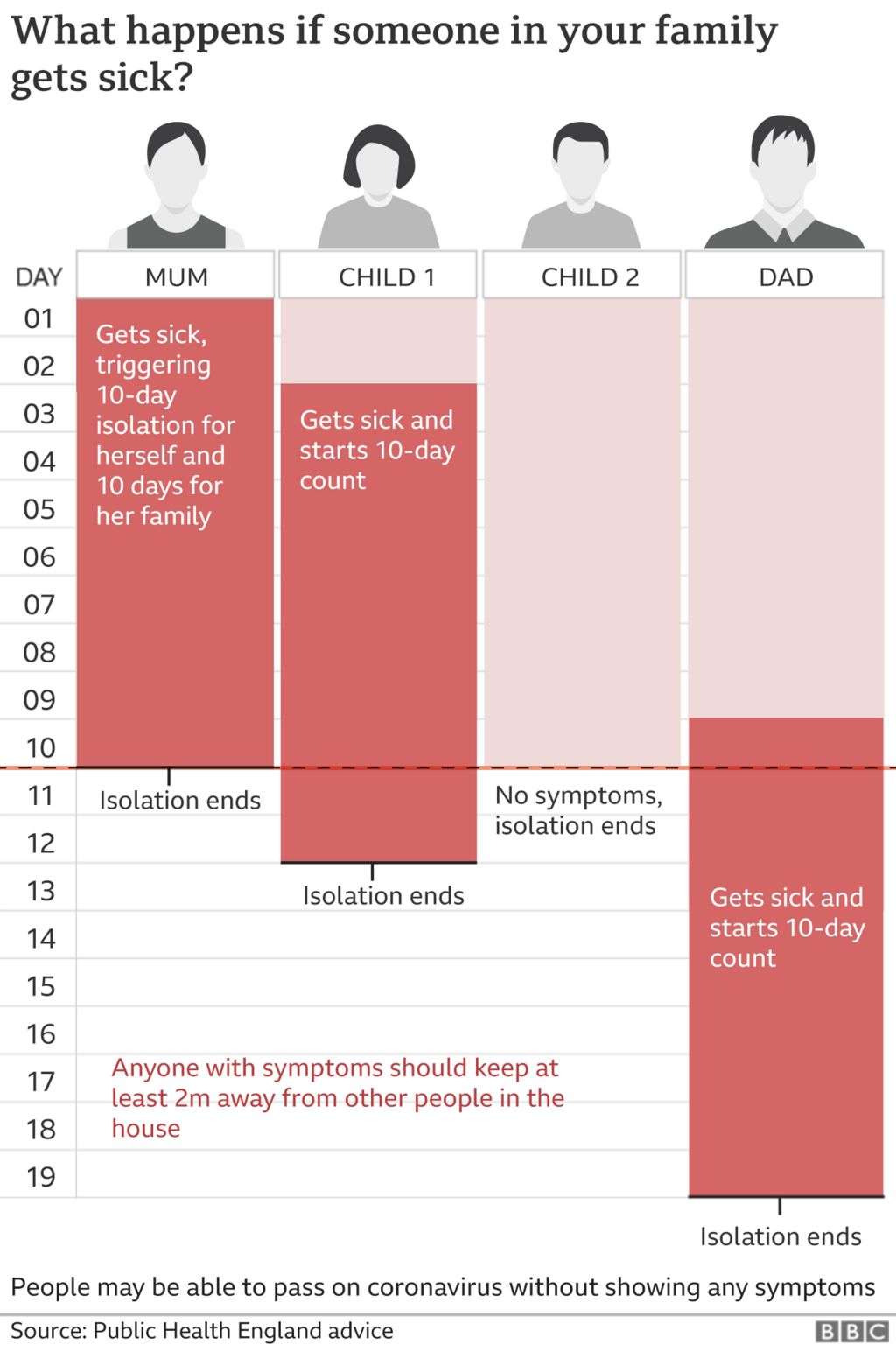Self-isolation rules in England are changing from 16 August for under-18s and the double-vaccinated.

image copyrightGetty Images
Rules on self-isolation are being eased for the fully vaccinated in England, Health Secretary Sajid Javid has announced.
There are also big changes for children who are close contacts of people who test positive.
From 16 August, anyone in England who is a close contact of someone who tests positive for Covid will no longer have to self-isolate if they’ve had both their jabs.
When they are notified about their contact, the NHS Test and Trace app will ask if they are fully vaccinated.
If so, they will be advised to take one PCR test as soon as possible to make sure they haven’t been infected. As long as that test is negative, and they don’t develop symptoms, they won’t need to take further PCR tests.
However, anyone who tests positive or develops symptoms will still need to self-isolate, regardless of their vaccination status.
People who have a second vaccine dose close to 16 August will have to wait two weeks after the jab before following the new rules. This is to allow the vaccination to take full effect.
From the same date, children will no longer have to self-isolate if a close contact tests positive. Instead they will be advised whether they need to be tested.
Once school starts after the summer holiday, it’s hoped this will stop situations where entire classes or year group bubbles have to self-isolate at home.
However, any child who tests positive or develops symptoms will still have to self-isolate.
Self-isolation means staying at home and not going out for any reason – not even to buy food or medicine.
You should order online groceries, or ask friends or family to leave items outside your door.
No one from outside your household should come inside, unless a family member receives essential care at home.
Currently you must self-isolate if:
- You have Covid symptoms
- You test positive for Covid-19
- You live with someone who tests positive
- You live with someone who has Covid symptoms (unless they have a negative test)
- You arrive in the UK from an amber or red list country
- You are told to isolate by NHS Test and Trace, Test and Protect in Scotland, Test, Trace Protect in Wales or Northern Ireland’s Contact Tracing Service
- You are notified by your school that you have been in contact with someone who has tested positive
If you have any Covid-19 symptoms, you should self-isolate for at least 10 days from when they start, and arrange to get tested.
If you don’t have symptoms, but test positive, you must also self-isolate for at least 10 days. This starts from the day you took the test. If you subsequently develop symptoms you must restart your 10-day isolation.
If you have symptoms or have tested positive, you should:
- Keep your distance from other members of your household
- Leave windows open to improve ventilation
- If possible, sleep and eat in a different room, and use a separate bathroom
- If you have to share a bathroom, use it after everyone else and clean it thoroughly afterwards
Until 16 August, if you live with someone who tests positive, you must also self-isolate, regardless of whether you have symptoms.
This means you must not leave the house for 10 days from the day they first became ill, or – if they have no symptoms – from the day they tested positive.
If they or you subsequently display symptoms, you must start a new 10-day isolation period.

A £500 grant is available in England to people on low incomes who have to self-isolate. This includes parents who can’t work because their child has to self-isolate.
In Scotland people can apply for the Self-Isolation Support Grant, worth £500, and there is a similar scheme in Wales. In Northern Ireland a discretionary payment is available.
You may also be entitled to Statutory Sick Pay, which is worth £96.35 a week, or more if your employer has a sick pay scheme.
Anyone who does not self-isolate could be fined. In England, fines start at £1,000 rising to £10,000 for repeat offences.
However, there have been concerns about how many people follow the rules – some studies have suggested fewer than 20%.
The government’s scientific advisory body, Sage, has previously highlighted research suggesting people on lower incomes are much less likely to feel able to self-isolate.
Travellers entering the UK from an amber list country must self-isolate for 10 days, with tests on days two and eight.
Arrivals from red list countries must self-isolate for 10 days in a government-approved quarantine hotel, which must be booked and paid for in advance.
However, the government says people who are double-vaccinated won’t have to quarantine on their return to England from amber list countries, unless they test positive.
Transport Secretary Grant Shapps will set out further details shortly.
- In Scotland, anyone who develops Covid symptoms must isolate straight away and arrange a test. If the test is positive, you should self-isolate for 10 days from when symptoms started. Close contacts should also self isolate for 10 days
- In Wales, anyone with Covid symptoms should also self-isolate for 10 days. Anyone who has been a close contact of someone who tests positive should also self-isolate
- In Northern Ireland, anyone with symptoms should isolate immediately and book a test. If the test is positive you should not leave your home for 10 days from when symptoms started